CATEGORIES
فئات

MY PEDALBOARD STEVE HACKETT
WHAT THE PROG-ROCK ICON SEES WHEN HE LOOKS DOWN

Anglo American to Retain Stake in Platinum Business
Anglo American said it will retain a 19.9% stake in Anglo American Platinum after its planned demerger this summer.

'Love Hurts' Star Turns To Spielberg For Advice
On the set of \"Indiana Jones and the Temple of Doom,\" Steven Spielberg and George Lucas hired a martial arts instructor to teach a 12-year-old Ke Huy Quan how to kick.

Thrifty Couples Sprint to the Altar
Accelerating your wedding timeline offers lots of opportunities for saving as venues try to fill last-minute cancellations

Yasmin Williams
A FOLK GUITAR VIRTUOSO BRANCHES OUT ON HER THIRD ALBUM, ACADIA

Seven Stringer
Spiritbox guitarist Mike Stringer dispels the illusion of the band’s overnight success” while being stoked about their new album and playing to massive crowds

Sealing These Letters With a Big Kiss Is an Impossible Feat
Even So, Electronic Mail Links Writers Around the Globe; Missing: Perfumed Pages
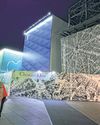
China's Love Affair With Luxury Has Cooled
Xie Weina used to buy luxury bags that cost $1,500 or more every couple of months. Last year, instead of bags, she spent about $2,800 on a gym membership and Pilates lessons.

Martial Artists
COBRA KAI COMPOSERS ZACH ROBINSON AND LEO BIRENBERG TALK GEAR, SEASON 6 AND HOW THEY CONSCRIPTED TOSIN ABASI, CHARLIE ROBBINS AND POLYPHIA'S TIM HENSON INTO THEIR MUSICAL DOJO

EU Is Preparing New Sanctions On 'Shadow Fleet'
EU officials are close to an agreement to list more than 70 vessels.
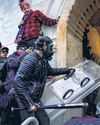
Rioters Say Pardons Apply to Other Crimes
Defendants argue they should also be absolved of additional charges

City Is Lab for Trump-Style Government
'Surf City USA' council embraces MAGA ideas in blue state of California

Western Tech Companies Avoid China
As tensions rise, some firms are moving production to other nations

The Indoor Mile Record Stood for Years. Then It Fell Twice in Five Days.
One week ago, Yared Nuguse was walking on air.

Released Gaza Hostages Face Long, Wrenching Recoveries
Nightmares, injuries and survivor's guilt haunt former captives for months after being freed; my body is still tense’

Flunking a Personality Test Can Cost You Your Dream Job
Employers are studying psychologists’ questionnaires, astrology and handwriting analysis

Meta's AI-Powered Ray-Bans Help Blind Navigate Life
After Allison Pomeroy lost most of her vision two years ago, her husband began reading menus, signage, and other text out loud to her. He doesn't need to anymore.

As U.S. Sales Fall, Companies Struggle to Find Right Price
Shoppers are getting more difficult to please.

For Thousands, Border Is Just a Daily Commute
EL PASO, Texas-President Trump's tariff threats are injecting economic tension along the border that slices between two busy cities here.

Time to Start Your Spring Break Prep
It seems like I was just doling out holiday travel tips and now we are on the cusp of spring break.

CIRCLING BACK
From an incomplete Gregg Allman track to appearances by former ABB bandmate Derek Trucks, Warren Haynes’ gripping new album oozes with Allman Brothers Band mojo
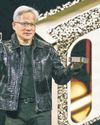
DeepSeek Did Nvidia a Favor
The semiconductor maker has big year ahead, but its selloff might set better stage for chip-product transition
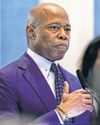
New York Governor Weighs Ousting NYC Mayor
New York Gov. Kathy Hochul suggested Monday night she would consider removing New York City Mayor Eric Adams from his post amid turmoil in his administration and said she would meet with city leaders on Tuesday on how to bring stability to the government.
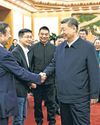
China Changes Tack on Tech Titans
In a meeting with Jack Ma and CEOs, Xi Jinping signals crackdown is over

GEORGE'S OTHER MASTERPIECE
Living in the Material World, George Harrison's 1973 follow-up to All Things Must Pass, is a moveable feast that's ripe for rediscovery. Dhani Harrison dissects the making of the original album and producing the new 50th-anniversary box set

BUCK DHARMA
Blue Oyster Cult co-founder Donald Buck Dharma” Roeser revegls how the classic Reaper” riff come about ond the secret recipe to his beloved CheeseBerger guitar

PEAVEY
Now celebrating six decades in the music business, Peavey offers something for every kind of player. CEO Courtland Gray looks back on the company’s most beloved products, including gear designed with Eddie Van Halen

Spiral XP
SHOEGAZE SUPERFAN MAX KEYES EMBRACES OPEN TUNINGS, PITCH BENDS AND MORE ON HIS LATEST ENDEAVOR

LOST CLASSICS: X
BILLY ZOOM RECOUNTS THE MAKING OF THE ICONIC L.A. PUNKS’ 1982 MAJOR-LABEL DEBUT, UNDER THE BIG BLACK SUN

Neon Nightmare
HOW SPIRIT ADRIFT'S NATE GARRETT CREATED A BRILLIANT ONE-MAN HOMAGE TO TYPE O NEGATIVE